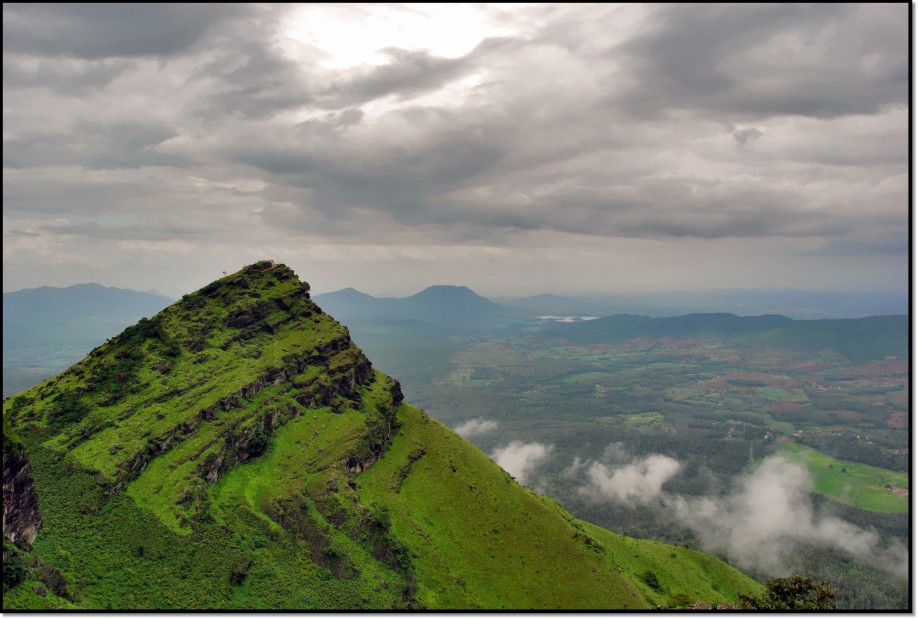Bababudangiri in the Chikmagalur region. Image by Riju K.
Bababudangiri is a mountain in Southwest India. It is a religious and culturally relevant location, and “the region is considered the home of Indian coffee.(Hoffman 2015)” This area is known particularly for its shade coffee production working in tandem with agroforestry and conservation efforts (Nath 2011), so there is already a precedent of certain permaculture principles being employed for coffee production in the area.
Any partially south facing and gently sloped area would suit coffee production. Ideal overgrowth would be predominantly native trees as in traditional polycultures, but also additional crops such as Acrocarpus fraxinifolius, rubber trees, empress trees, or cashews. Undergrowth can be whatever shade tolerant plants that serve the community or soil health.
A major component to the economic stability of this particular location would be the creation of a religious retreat center. The Bababudangiri shrine “is famous for the Dattatreya Peeta ‑ a Hindu temple and a Muslim dargah both in the same underground cave (Madur 2015)”. It is a pilgrimage site for both Hindus and Muslims, and is also an internationally-known hiking location with many other nearby temples and shrines (Madur 2015). This locale has the ideal model for an eco-retreat center and permaculture reforestation site. Lodging, spiritual centers and ceremonies to accommodate pilgrims of all paths would be available, as well as PDC and cultural classes for supplemental income. The farm can become a location for international tourism, which takes pressure of the farmers to rely on intensive farming. It also allows for direct sale of value-added coffee products (“it is believed that the Baba Budan brought coffee to India for Dattatreya, an incarnation of Shiva. (BabaBudangiri, Chikmagalur: History, Treks, & Map from Bangalore)” This diversification of income streams and employment opportunities would stabilize the farm as well as create livlihoods for women, indigenous peoples, and those incapable of agricultural work in the community.

